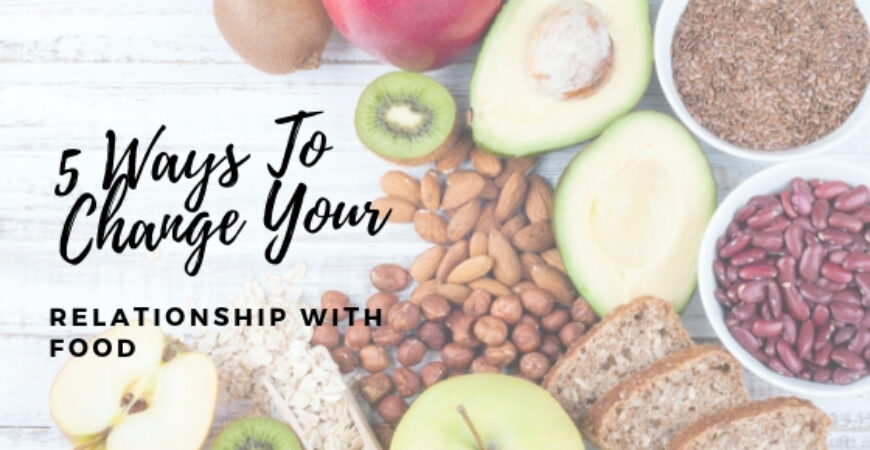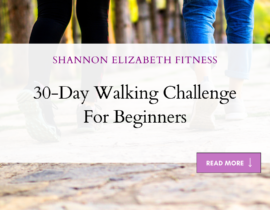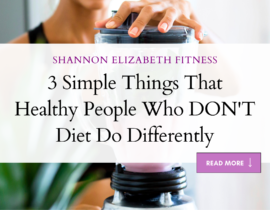Changing my relationship with food is an ongoing process.
When I talk to other people about health and fitness, food is always the biggest pain point. Many of us who live in western culture tend to have a deformed relationship with food. Although when I think about it, even that statement isn’t entirely true. It’s more like we have bizarre relationships with food-like products. Because, when was the last time you heard someone talk about their out of control stir-fry addiction? And I’ve never heard anyone berate themselves because they went back for that second serving of sautéed vegetables.
But if I replace the words stir-fry and vegetables with chips, candy, or anything covered in cheese and it’s a different story. It’s these food-like products that have us chained to an unhealthy lifestyle. And it’s our attachments to these foods (and the meanings we’ve assigned to them) that hold us back.
Post contains Affiliate links #ads. See Disclosure for details. Opinions are my own.
Convenience isn’t that convenient.
You know that saying, ‘if something sounds too good to be true, it probably is’?
Adults of the ’80s and ’90s should have held that in mind when the convenience food explosion arrived in grocery stores. But they didn’t and instead they raised one of the first generations who were brought up on excessive amounts of sugar, salt, and fat. Processed foods with preservatives, unnatural food coloring, and artificial flavoring became a staple for many children of the ’80s, ’90s and on. These food-like products then became diet staples and quickly started to change the face of health in a very negative way.
Even with health-conscious parents, many people say it was/is hard to completely avoid the convenience plague. And as a result, many adults in western cultures today struggle with the inconvenience of weight management and food-related disease.

Identifying the true problem.
So, the real problem isn’t food. And to be honest, the problem isn’t really the food-like products either. Rather, the issues lie with the attachments we have to these foods and the habits we’ve created with them. For most people who struggle with weight, there are emotional triggers for our eating and drinking habits. The key is to learn to identify what (or who) these triggers are and reprogram how we address them. When you learn the emotions and feelings surrounding your eating choices it becomes much easier to take control of your eating, rather than letting food and eating control you.
5 small steps toward a better relationship with food:
- Food Journal – For at least a week, record everything that you eat and drink. As well, record what was going on 30 minutes or so prior to eating. Doing this will allow you to make connections between things going on in your life and your food choices. When I tracked my eating habits it was crazy to see a clear connection between a very specific person and my drinking and food bingeing. When I removed this person from my life I lost almost an immediate twenty pounds.
- Give up the All or Nothing approach – I talk about the need to give up the All or Nothing approach to health and fitness in an earlier blog post as well. While I don’t necessarily subscribe to the “everything in moderation” theory, I absolutely do not believe in restriction. A restrictive diet will end up cause further damages to your relationship with food. I speak from experience. So, if you want a piece of cake or a bag of chips, go for it! The issue is whether or not you’re eating those foods for the right reason. If you want the sweet for the simple and pure enjoyment of it, there is nothing wrong with that. But, if the sweet is going to comfort you, ease anxiety, make you feel less sad or lonely then please, put down the fu*king cookie and text a friend instead.
- Conscious Eating – Lots has been written on this subject! I think conscious eating can mean different things to different people. For me, it means not allowing myself to blindly eat or drink. It means recognizing that everything I put into my mouth is a choice. I’ll be honest, it is this type of thinking that led me to my vegan lifestyle but I’ll write more about that another day. Conscious eating is a powerful gift to give yourself because whenever you do anything very consciously you put yourself back in control.
- Self Rules – I find self-imposed rules very beneficial. Having a few self rules with regards to food can make a big difference. An example of one of my own self rules is my 30-minute rule. If I want/crave something that is unhealthy then I have to distract myself for 30 minutes before I can eat it. If after 30 minutes I still truly want whatever it is, then I eat. More than half of the time I forget about the food before the 30 minutes are up.
- Water – This is kind of like one of my self rules. Actually, it’s totally a self-rule but it works and is really good for you. Greet initial food cravings with a glass of water. This is a reprogramming trick. Too often, we confuse the feeling of hunger with thirst. When a craving comes along, impose the self-rule that you will drink a 6-8oz glass of cool water first. The water fills your stomach and gives it an immediate full sensation. It also hydrates you and makes your brain happy. Chances are the water is what your brain and body was truly craving.
Be patient.
All relationships take time and patience to change and grow, and your relationship with food is no different. Big changes won’t happen overnight. But small consistent changes will make for a huge difference in the long run.
Do you struggle with food? What is your biggest issue? Let’s talk about it in the comments.
- Starting A NEW Fitness Journey At Nearly 40 Years Old! - 06/09/2024
- 30-Day Walking Challenge For Beginners - 12/05/2024
- 3 Simple Things That Healthy People Who DON’T Diet Do Differently - 10/05/2024




